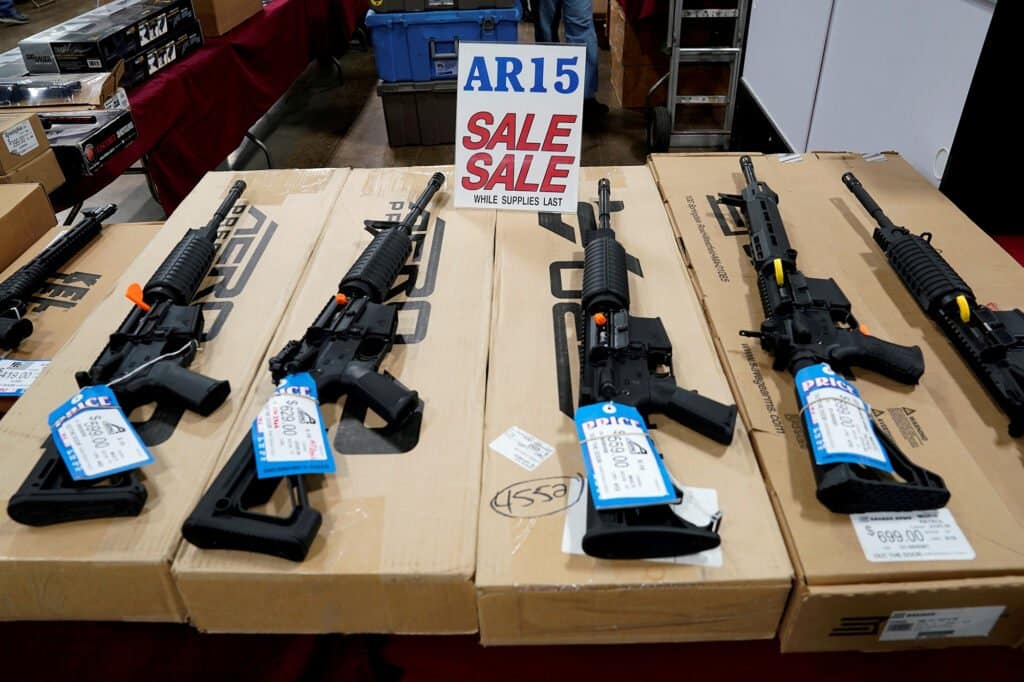The Belgian police collected over 22.000 firearms and decided to make something useful out of them by casting them back into usable metal.
After the trial, the weapons were turned into 60 tons of recycled steel.
Where did all these firearms come from?
About half of the weapons were handed over by owners from all over the country, many of whom found them at home through inheritance and no longer wanted them. The other half were old guns used by the police.
The weapons were melted down over three days by steel giant ArcelorMittal at its plant in Ghent. It is the third time the Belgian government and the steel company have collaborated to melt down the firearms.
“The result is impressive: 22.457 firearms have disappeared from our society,” he said in a release Carina van Cauter, governor of the province of East Flanders. “It is obviously good for the safety of our citizens that these weapons are no longer in use.”

Because it is a great choice
Several studies show that Van Cauter is right: the fewer weapons there are, the safer people are. The exact opposite of the idea that many Americans have of a safer society when it is armed.
A famous study from the late 80s and 90s by Arthur Kellermann looked at the cases of 444 people who had been murdered in their homes. A gun in the home was associated with a nearly three-fold increase in the odds of someone being killed from a family member or close acquaintance. Over 30 subsequent studies confirmed the results.
Weapons: the less, the better

There is really uniform data to support the claim that access to firearms is associated with an increased risk of firearm-related death and injury.
One of the reasons why owning a gun makes people less safe is that it increases the chances of a situation escalating. “The fact that you have a gun may mean that you do things you shouldn't do: you take risks you otherwise shouldn't take; you go to places where it's not really safe, but you feel safe,” he says David Hemenway , director of the Harvard Injury Control Research Center.
Therefore, the added risk of owning a firearm can negate the positive benefits of self-defense.

Belgium is leading the way
Belgium hosts restrictive gun laws. The country prohibits fully automatic weapons and only allows them in certain situations. People can only own guns if they get express permission from the government. The only weapons not limited by the state are rifles.
It's Italy?
A Censis report estimates that in Italy there are between 4 and 10 million weapons, and more than 4.5 million Italians have a weapon on hand. The report hypothesizes a scenario in which Italy adopts a "self-defense" model (from surveys, 39% of Italians are now positive on the issue). Annual gun deaths would increase from the current 150 to 2700.
It is estimated that only 5% of Belgian citizens own a gun. The rate of homicides caused by firearms in the country is 0,7 per 100.000 deathsTo make a comparison, in the US, the average rate is 4,4 deaths from murder by firearms per 100.000 people.
There are approximately 400 million firearms in the United States.


